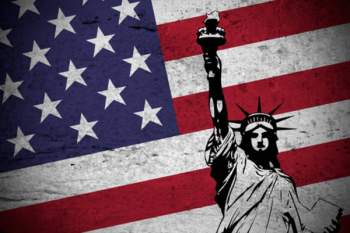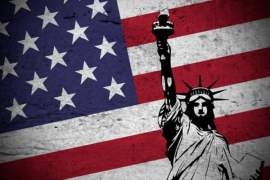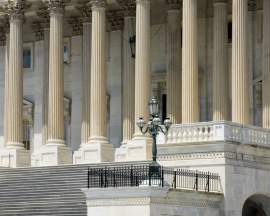
The Short Biography of George Washington

Popular In Constitution
Purpose Of Lifetime Appointment And Pros And Cons Enumerated Powers Bicameral Legislature Background Article 3 Of The Constitution We The People 1st Amendment Who Wrote The Constitution Judicial Review Equal Protection Clause 5th Amendment 10th Amendment Three Fifths Compromise
From 1789-1797 George Washington served as the first President of the United States of America. Washington is regarded as the "Father of the United States" for his numerous achievements, most notably his role as commander of the Continental Army in the Revolutionary War and his unyielding efforts to formulate a unified and efficient country. Washington's intelligence, charisma, and military experience made him perhaps the most successful and revered general in United States history.
Aside from his remarkable accomplishments, Washington's achievements went beyond the war, extending to the formation of America and the creation of the United States Constitution. Although his closest advisers (Thomas Jefferson and Alexander Hamilton) respectively positioned themselves within the Anti-Federalist and Federalist sanctions, George Washington never affiliated himself with a political party. The first President of the United States believed that political parties would create stagnation and the creation of opposing sides would impede the collective goals of the country.
In regards to the creation of the Constitution, George Washington must be held separate from his fellow Founding Fathers. During the Revolution Washington was busy fighting and leading armies to victory over British factions. The "Father of the United States" was tangled in a war, while his fellow intellects were busy contemplating the future and structure of the United States Government.
That being said, in a popular George Washington biography-The Real George Washington-it was revealed that the first President was quite skeptical over the creation of a Constitution. In the George Washington biography he is quoted as saying, "I almost despair of seeing a favorable issue to the proceedings of the convention, and do therefore repent having any agency in the business."
George Washington's uneasiness in regards to the
Constitution stemmed from a bipartisan sentiment. The goal of finding
compromise, of pleasing both contrasting parties, seemed beyond arduous. Washington
had similar fears to prominent Anti-Federalist Party members. He believed that
America should be reticent towards the creation of a federal government and
avoid similar tyrannous actions imposed by the British Parliament. Washington
eventually agreed to preside over the Philadelphia Convention in 1787 and
oversee the drafting of the United States Constitution.
The first President felt as though the original Articles of Confederation severely lacked in finding an appropriate balance of powers. In addition, events such as Shay's Rebellion and the crippling effects of war enlightened George Washington to the need of a functional and powerful central government. Through the George Washington biography his sentiments over an empowered federal government became transparent. Washington, who was a general at heart, believed that the army needed proper funding and stability to perform its critical duties. Washington's biggest fear was a nation with a weak heart, one that could be taken over with an effortless assault.
Following the adoption of the Articles of Confederation, George Washington was viewed as the leader of the newly found America. Due in large part to his heroic military efforts, he was lauded as an exemplary Republican and true warrior. Although not intended to join the Constitutional Convention, Washington was unanimously selected as President. Washington rarely participated in debates, but as the need for a national President grew, the delegates of the Constitutional Convention were all aware of the appropriate choice. George Washington received 100% of the electoral vote and assumed the role as President in 1789. Immediately upon entering office, his support and prestige convinced the 13 states to unanimously ratify the American Constitution.
NEXT: Thomas Jefferson





















